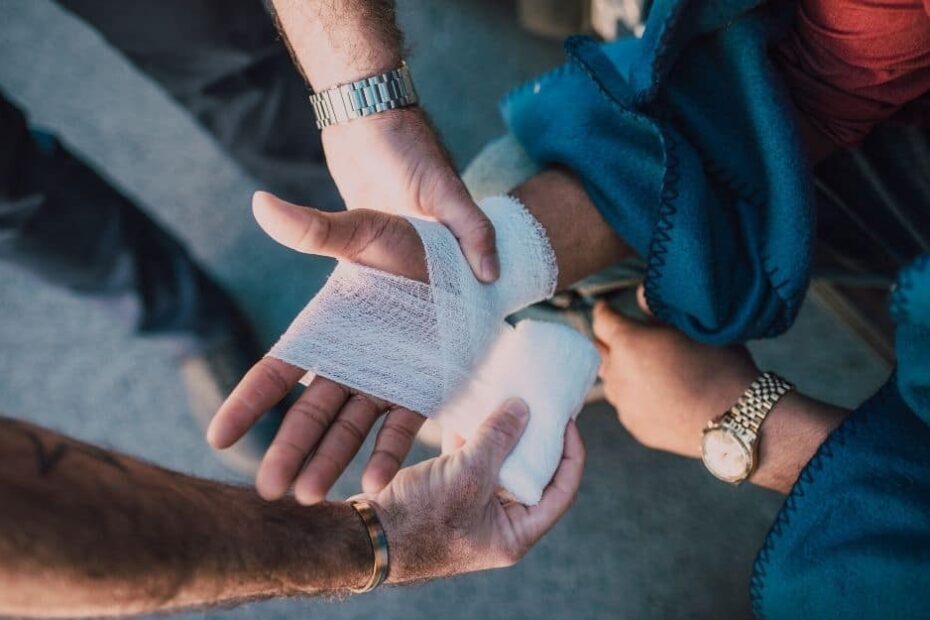In the event of a motor vehicle accident, your ability to make a claim under the New South Wales compulsory third party insurance scheme depends on whether your injury is classified as a minor or non-minor injury. Whether an injury is considered minor or non-minor depends on the diagnosis of the injury, not the physical or emotional impact it may have.
This post will explain the difference between these types of injuries, and how this classification impacts your ability to receive support payments and damages.
What is a minor injury?
Minor injuries are the injuries from which you would normally expect to fully recover within a short period of time. As a result, entitlements to compensation stop twenty-six (26) weeks after the accident.
There are two types of minor injury:
- Soft tissue injury – an injury to the soft tissue of your body, usually a muscle, for example, whiplash. An injury is not minor however if it involves a tear of a ligament, tendon, meniscus or cartilage.
- Minor psychological or psychiatric injury – feelings such as sadness, stress, fear or anger that are not severe enough to constitute a recognised psychiatric illness such as depression or anxiety. However, two psychiatric illnesses are considered minor injuries: adjustment disorder and acute stress disorder.
What can I claim?
If you experience a minor injury, you may obtain benefits from your insurer for up to 26 weeks after the accident. These may include weekly income support payments, medical and treatment expenses and domestic and personal care services. In some circumstances, these benefits may be available beyond 26 weeks after the crash if they will aid your recovery. If you believe you require this extra support, discuss this with your insurer’s case manager.
What is a non-minor injury?
An injury is not minor if it does not fall into the above categories of soft tissue or minor psychological or psychiatric injury. Examples of non-minor physical injuries may include fractures, nerve injuries, tendon, cartilage, meniscus or ligament ruptures, or spinal nerve root damage. Examples of non-minor psychiatric injuries may include diagnosed illnesses such as depression or post-traumatic stress disorder (PTSD), or any other psychiatric illness included in the latest edition of the DSM-5.
What can I claim?
If you experience a non-minor injury and you were not wholly at fault for causing the injury or accident, you may be eligible to make a common law damages claim and receive lump-sum compensation. Claims must be made within three years of the date of the accident, depending on the severity of your injury.
There are two categories of compensation that may be awarded as damages: economic and non-economic loss. Note that the amount of damages you can receive may be reduced if you were partially responsible for causing the accident or your own injuries and that you cannot claim future medical costs as damages.
(The insurer will continue to pay for your reasonably necessary medical expenses as they are incurred).
Economic loss can include:
- Compensation for past loss of wages
- Compensation for future loss of wages or impairment of earning capacity
- Loss of entitlement to superannuation payments from your employer
- damages for costs relating to accommodation or travel incurred or likely to incur as a result of the injury
- damages for the cost of managing damages that are awarded
Non-economic loss compensates you for pain and suffering, reduced life expectancy and/or disfigurement and loss. It can only be claimed if the degree of permanent impairment caused by the accident is more than 10%.
For more information on minor injuries, visit the State Insurance Regulatory Authority website.
Weekly income payments
If your injury falls into the non-minor category and you decide not to make a claim for common law damages, you can receive weekly benefits for loss of income for up to two years. If your permanent impairment is 10% or less, you may receive extra time of up to three years from the date of the accident or until the common law damages claim is settled. If your impairment is more than 10%, you may claim weekly income payments for up to five years from the date of the accident or until the common law damages claim is settled.
For more information on applying for common law damages, visit the State Insurance Regulatory Authority website at https://www.sira.nsw.gov.au/claiming-compensation/motor-accidents-injury-claims/from-1-december-2017/lump-sum-compensation.
How an Accredited Specialist in Personal Injury Law can help
The effects of motor vehicle accidents can be devastating, and the system is difficult to navigate. The experienced Sydney motor accident lawyers at BPC can help alleviate the financial costs associated with a serious motor accident and provide expert help and advice throughout the claim.
Call Compensation Lawyers Sydney today if you’d like to know more about how we can assist you.
